Recent Blog Posts
Connecticut Drug Trends and What Is Being Done to Combat Them
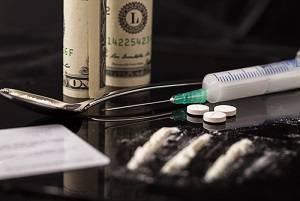 It is not uncommon for us to hear about the latest drug crime statistics and turn our ear in the other direction; the statistics can be alarming, not to mention discouraging. It is easy to become desensitized to the issue or to want to avoid it entirely.
It is not uncommon for us to hear about the latest drug crime statistics and turn our ear in the other direction; the statistics can be alarming, not to mention discouraging. It is easy to become desensitized to the issue or to want to avoid it entirely.
The reality, however, is that drug crime trends shift and change with time all across the nation, including here in the state of Connecticut. Progress has been and continues to be made in the fight against illegal drug activity, and while it will never be eliminated completely, the efforts to combat it do make a difference on a broader spectrum.
Drug Trend Snapshot
According to the National Survey on Drug Use and Health, Connecticut has been considered one of the top ten states for dependence on illicit drugs, particularly among young adults between the ages of 18 and 25. Another recent trend reported that heroin is cited among drug treatment admissions as the most commonly abused drug in the state, and marijuana and cocaine are not far behind. The illicit drug category includes non-medical use of prescription medications, which is monitored closely by the CPMRS (The Connecticut Prescription Monitoring and Reporting System). Prescription medication abuse holds the distinction for the fastest-growing drug problem in the United States.
What Happens to Drivers Arrested for Operating Under the Influence?
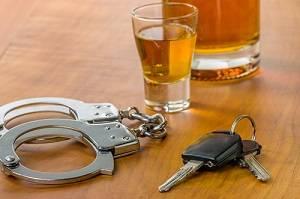 Chances are you have heard about the alarming OUI (operating under the influence) statistics across the state and the nation, and you might even know someone personally who has been involved with a DUI crime at one point or another. The statistics and the stories you hear at work, in your neighborhood, and around your community are plentiful for a reason: driving under the influence is, sadly, a common crime. The fact that it is so common does not make it acceptable, though; driving under the influence of drugs or alcohol is a serious criminal offense and is treated as such by Connecticut State law.
Chances are you have heard about the alarming OUI (operating under the influence) statistics across the state and the nation, and you might even know someone personally who has been involved with a DUI crime at one point or another. The statistics and the stories you hear at work, in your neighborhood, and around your community are plentiful for a reason: driving under the influence is, sadly, a common crime. The fact that it is so common does not make it acceptable, though; driving under the influence of drugs or alcohol is a serious criminal offense and is treated as such by Connecticut State law.
How the Offense Is Determined
The state of Connecticut considers driving to be a privilege that one must earn and keep. The state’s Implied Consent Law says that any driver who operates a vehicle is considered to automatically give their consent for alcohol testing the moment they get behind the wheel. In short, if you drive, you are technically--by law--agreeing to be tested for alcohol consumption, should you be pulled over. The state retains its right to prosecute with or without direct evidence of your BAC level. This prosecution is determined by your ability to drive. If you are found to be impaired and your driving ability is affected, the state has the right to prosecute.
Drug Charges Near School Property
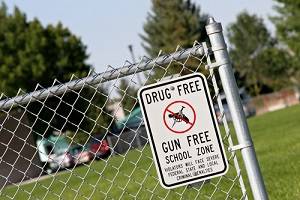 Like any drug charge, at either the federal or state level, facing a drug charge in Connecticut can be devastating and have long-term effects that extend into multiple areas of a person’s life for years to come. Until very recently, however, the state had some of the most draconian drug laws in the country, eased only last year. The recently relaxed laws pertain to small possession charges of marijuana, and equalize punishment and criminal severity of cocaine and crack cocaine—for decades, crack cocaine was a much more severe charge resulting in higher fines and longer jail time. The bill included the stipulation that all felony drug possession charges would be reduced to Class A misdemeanors. It also expanded parole laws, allowing for a prisoner to be considered for release on parole after an evaluation but before having a proper hearing, providing that he or she was not convicted of a violent crime and is not familiar with the victim of the crime (ie: a person convicted of domestic violence or spousal battery would not be eligible for early release without a proper hearing).
Like any drug charge, at either the federal or state level, facing a drug charge in Connecticut can be devastating and have long-term effects that extend into multiple areas of a person’s life for years to come. Until very recently, however, the state had some of the most draconian drug laws in the country, eased only last year. The recently relaxed laws pertain to small possession charges of marijuana, and equalize punishment and criminal severity of cocaine and crack cocaine—for decades, crack cocaine was a much more severe charge resulting in higher fines and longer jail time. The bill included the stipulation that all felony drug possession charges would be reduced to Class A misdemeanors. It also expanded parole laws, allowing for a prisoner to be considered for release on parole after an evaluation but before having a proper hearing, providing that he or she was not convicted of a violent crime and is not familiar with the victim of the crime (ie: a person convicted of domestic violence or spousal battery would not be eligible for early release without a proper hearing).
Study Reveals Characteristics of Juveniles Who Rehabilitate, Offering Hope for the Future
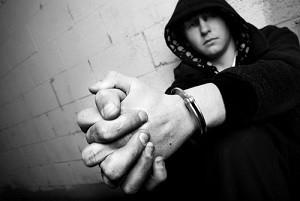 Although the number of youths charged with crimes has been on the decline, statistics show that the juvenile justice system still processed more than one million teens and children for crimes in 2014. Their charges, which range from simple drug violations and vandalism to murder, often carry hefty penalties, particularly in more conservative, heavy-handed states. When paired with poor rehabilitation programs, the probability of recidivism increases exponentially. All of this makes one thing very clear: something must change if we hope to save our youth.
Although the number of youths charged with crimes has been on the decline, statistics show that the juvenile justice system still processed more than one million teens and children for crimes in 2014. Their charges, which range from simple drug violations and vandalism to murder, often carry hefty penalties, particularly in more conservative, heavy-handed states. When paired with poor rehabilitation programs, the probability of recidivism increases exponentially. All of this makes one thing very clear: something must change if we hope to save our youth.
How America’s Juvenile Justice System Is Failing Its Youth
Experts have long argued that youths in the juvenile justice system are treated unfairly, especially when their lack of maturity is taken into account. Some states – Connecticut, for example – have responded accordingly and managed to improve conditions and shift the focus to rehabilitation rather than punishment. But others fail miserably and, despite research and scientific studies, fail to recognize that young people are less likely to be able to self-regulate and make sound decisions.
Forgery and Counterfeiting: The Basics
 The crime of forgery may refer to large operations in which a person purposefully lies about the origin of a high-end luxury good in order to sell it at supposed market value. It may, in this case, bring to mind images of people hawking forged goods on the street corner or in discount stores. However, it may also refer to any instance in which a person signs another person’s name, such as for a package delivery, or accepting someone else’s mail.
The crime of forgery may refer to large operations in which a person purposefully lies about the origin of a high-end luxury good in order to sell it at supposed market value. It may, in this case, bring to mind images of people hawking forged goods on the street corner or in discount stores. However, it may also refer to any instance in which a person signs another person’s name, such as for a package delivery, or accepting someone else’s mail.
Yet it is not just the act of selling a forged product or pretending to be someone else in order to sign for him that is considered under law to be an act of forgery—any step in the counterfeiting process is subject to criminal punishment. This includes the manufacture of any analog or digital images, impressions of tools, or possessing such tools for counterfeiting purposes, no matter where in the world a person is at the time of the crime. That is, it is technically against the law for any person outside of the United States to manufacture, deal, or possess any counterfeit security of the United States—however ambitious this is to enforce on the ground.
Affinity Fraud in Connecticut
 There are many types of money fraud that affect a wide variety of professions, places of work, and institutions. After the financial downturn of 2008 and front-page scandals involving prominent bankers engaged in fraudulent activity—particularly Bernie Madoff, who orchestrated a $65 billion Ponzi scheme that has since been categorized as the largest Ponzi scheme in American history—one may think that the rate of financial fraud would be decreasing. On the contrary, incidents of financial fraud continue to plague the U.S. business system, in some areas at an even higher rate than before the financial downturn and epic scams like Madoff. In fact, the Federal Trade Commission reports that there was a 62 percent increase in financial fraud claims between 2011 and 2012, with just over 1.5 million people filing such claims. Not all of these are so-called “affinity” scams, such as Madoff’s Ponzi scheme. Some are much more personal, involving incidents such as one in which a person willingly hands over a personal check to a fraudulent cause.
There are many types of money fraud that affect a wide variety of professions, places of work, and institutions. After the financial downturn of 2008 and front-page scandals involving prominent bankers engaged in fraudulent activity—particularly Bernie Madoff, who orchestrated a $65 billion Ponzi scheme that has since been categorized as the largest Ponzi scheme in American history—one may think that the rate of financial fraud would be decreasing. On the contrary, incidents of financial fraud continue to plague the U.S. business system, in some areas at an even higher rate than before the financial downturn and epic scams like Madoff. In fact, the Federal Trade Commission reports that there was a 62 percent increase in financial fraud claims between 2011 and 2012, with just over 1.5 million people filing such claims. Not all of these are so-called “affinity” scams, such as Madoff’s Ponzi scheme. Some are much more personal, involving incidents such as one in which a person willingly hands over a personal check to a fraudulent cause.
Decreasing Rates of Property Crime
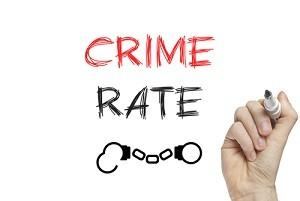 Violent crime has seen a marked decrease in the past decades, leading many U.S. citizens to feel more secure than ever before. Just as violent crimes—such as rape, murder, and assault—have decreased in recent years, the rate of property crime has as well. Despite a national economic climate that some would say leads to a higher rate of non-violent property crime, over the five-year period between 2006 and 2010, there was more than a 12 percent drop in property crime. The 2010 rate of property crime (how many incidents per number of 100,000 residents) was about 2,9400—a marked decrease from 3,660 in 2001 and 3,350 in 2006.
Violent crime has seen a marked decrease in the past decades, leading many U.S. citizens to feel more secure than ever before. Just as violent crimes—such as rape, murder, and assault—have decreased in recent years, the rate of property crime has as well. Despite a national economic climate that some would say leads to a higher rate of non-violent property crime, over the five-year period between 2006 and 2010, there was more than a 12 percent drop in property crime. The 2010 rate of property crime (how many incidents per number of 100,000 residents) was about 2,9400—a marked decrease from 3,660 in 2001 and 3,350 in 2006.
There are several types of property theft as defined by the Bureau of Justice Statistics. These include (but are not limited to): burglary, larceny, theft, and motor vehicle theft. Burglary is the forcible breaking and entering to an unauthorized location, and usually involves charges of theft as well. Motor vehicle theft is the stealing of a car or other type of motor vehicle. Larceny is the unlawful taking of property—other than a motor vehicle—without force. That is, pickpocketing or shoplifting would be considered larceny. A charge may be increased to grand larceny depending on the value of the stolen items.
Wrongly Accused of Sexual Assault or Rape
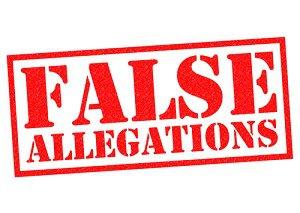 If you are accused of rape or forcible sexual assault, it is an allegation that has the potential to stay with you forever, even if you are acquitted of the actual crime. This is especially true for young people in universities, because of the sensitive nature of alleged sexual assault in public or private institutions.
If you are accused of rape or forcible sexual assault, it is an allegation that has the potential to stay with you forever, even if you are acquitted of the actual crime. This is especially true for young people in universities, because of the sensitive nature of alleged sexual assault in public or private institutions.
Growing Concerns
Due to several recent highly-publicized crimes in which university officials did not necessarily respond to allegations of rape with the fullest severity required by law, some colleges have attempted to go the other way, meaning that allegations of rape are treated more seriously than ever before. This is good for legitimate victims, but it can also mean that false accusations are not investigated to the fullest and dismissed as such. Often, the accused is not given a fair chance in court or campus society. While it may be particularly difficult to disprove allegations of rape on campus, this is an issue that affects all accusations of sexual assault.
Using a “Threatening” Emoji or Emoticons Could be Considered a Crime
![]() Emojis and emoticons – little symbols used to communicate on mobile devices and on the Internet – have become a language all their own. This is especially true for millennials and the up-and-coming generation, many of whom have yet to even hear the word puberty, let alone actually reach it. With this new picture-speak, there comes an entire array of challenges, some of which may extend into the justice system - so much so that some may be wondering if they really could face criminal charges just for using them.
Emojis and emoticons – little symbols used to communicate on mobile devices and on the Internet – have become a language all their own. This is especially true for millennials and the up-and-coming generation, many of whom have yet to even hear the word puberty, let alone actually reach it. With this new picture-speak, there comes an entire array of challenges, some of which may extend into the justice system - so much so that some may be wondering if they really could face criminal charges just for using them.
The Language of Emoji and Emoticon
Like words, emojis and emoticons are used to communicate. But, unlike words, which are usually pretty straightforward in their meaning, the cartoonish symbols could mean almost anything. Take, for example, a seemingly harmless wink: in one conversation, it could be interpreted as flirtatious or ironic; in another, it could be intended as an actual threat. Unfortunately, because the inferred meanings are different from one person to the next--and often even from one conversation to the next with the same person--police officers, judges, and juries have no reliable way to tell the difference between the two.
Lawmakers Propose Heavier Penalties for Threats Made to Schools
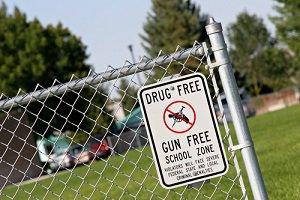 With more than 160 school shootings since 2013 – 52 of which occurred in 2015 alone – lawmakers are looking for a way to deter further violent acts and threats. This is the goal behind their latest proposed bill. If passed, it would increase penalties for those found guilty of even simply making a threat against any school, including preschools, primary schools, high schools, and higher education schools.
With more than 160 school shootings since 2013 – 52 of which occurred in 2015 alone – lawmakers are looking for a way to deter further violent acts and threats. This is the goal behind their latest proposed bill. If passed, it would increase penalties for those found guilty of even simply making a threat against any school, including preschools, primary schools, high schools, and higher education schools.
Recent “Wave” of Threats Prompted New Bill
According to the chairman of the House Judiciary Committee, Stamford Democratic Representative William Tong, several bomb threats have recently been made against schools throughout the state of Connecticut. All prompted complete evacuations, causing needless panic among students, staff, and police. Senator Tony Hwang of Fairfield, also in support of the bill, says the threats have gone above and beyond simple childhood pranks.







